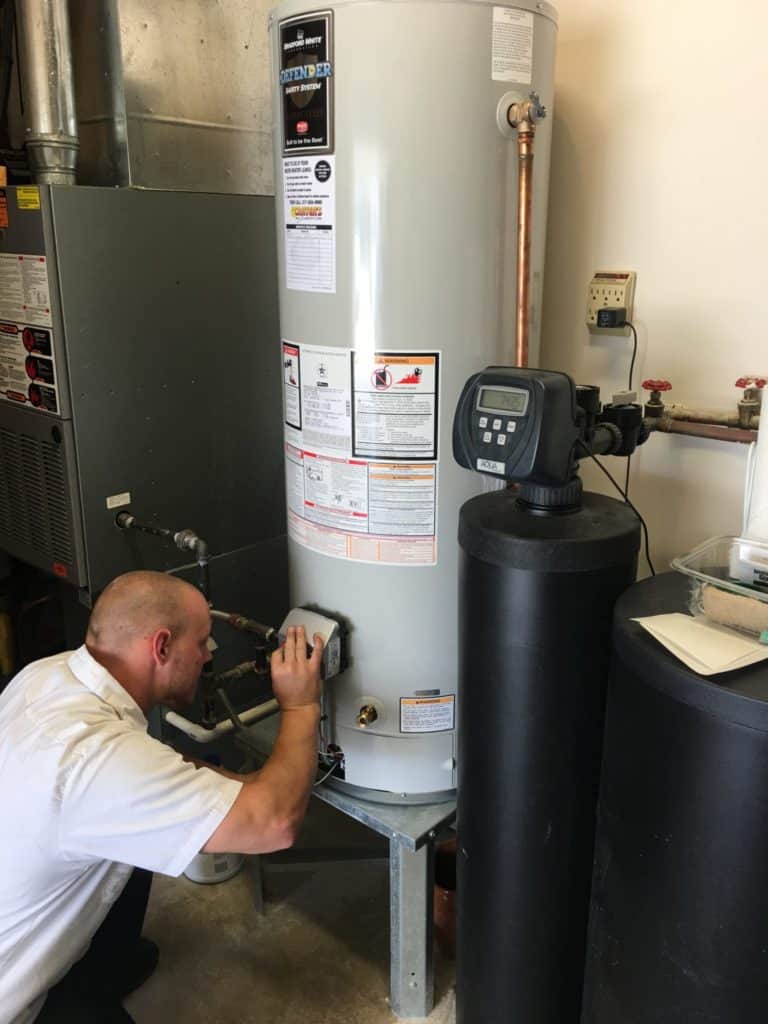Responding to the Everyday Heater Urgent Problems
Responding to the Everyday Heater Urgent Problems
Blog Article
Just about every person has their own unique idea in relation to Is Your Water Heater Leaking?.

A hot water heater is among one of the most essential basic home appliances that can be found in a residence. With water heaters, you don't require to undergo the tension of home heating water manually every time there is a requirement to wash, wash, or the dishes. There is always an opportunity that your water heater would certainly act up as with a lot of mechanical tools.
It is necessary to keep in mind any type of little malfunction as well as tackle it rapidly before points get out of hand. The majority of times, your hot water heater starts to malfunction when there is an accumulation of debris as a result of continuous usage. As a safety measure, routine flushing of your water heater is recommended to prevent debris accumulation as well as prevent practical failure.
Usual hot water heater emergencies as well as how to manage them
Too little warm water
It might be that the water heating system can not sustain the hot water need for your apartment. You can upgrade your water heating system to one with a bigger capacity.
Changing water temperature.
Your water heater might start generating water of different temperatures usually ice scalding or cool hot. In this circumstance, the first thing you do is to guarantee that the temperature level is set to the desired level. If after doing this, the water temperature level maintains altering throughout showers or various other activities, you could have a defective thermostat. There could be a need to replace either the thermostat or the home heating device of your hot water heater.
Leaking water heater tank.
A dripping tank could be an indication of corrosion. It could trigger damages to the flooring, wall and also electric devices around it. You can also be at risk of having your apartment or condo swamped. In this circumstance, you need to switch off your water heater, permit it to cool off, as well as meticulously try to find the resource of the issue. Sometimes, all you need to do is to tighten a few screws or pipeline links in cases of small leaks. But if this does not function and also the leak persists, you may require to utilize the solutions of a technician for an ideal substitute.
Tarnished or odiferous water
When this occurs, you require to understand if the concern is from the tank or the water resource. If there is no amusing smell when you run chilly water, then you are particular that it is your water heating unit that is faulty. The stinky water can be triggered by corrosion or the build-up of germs or sediments in the water heating unit tank.
Conclusion
Some home owners disregard little warning and minor faults in their water heater unit. This just causes additional damage as well as a possible total break down of your appliance. You should deal with your hot water heater faults as quickly as they come near avoid even more expenses and unnecessary emergency problems.
With water heating systems, you don't need to go with the tension of home heating water manually every time there is a demand to take a bathroom, do the washing, or the recipes. It might be that the water heater can not support the warm water need for your home. Your water heater could begin creating water of various temperatures normally ice scalding or chilly hot. If there is no amusing scent when you run cool water, then you are particular that it is your water heating system that is faulty. The odiferous water can be triggered by corrosion or the build-up of microorganisms or sediments in the water heater container.
Common Water Heater Issues and What You Should Do
What Type of Water Heater Do You Have?
Before we begin it’s first important that you identify the type of water heater you have on your property. There are two main types of water heaters out there: conventional and high efficiency.
Both of these types of products typically use either gas or electricity to heat power. There are also solar water heaters that use a thermal collector on the roof or yard to heat the water.
While these models are not as common, they can cut heating costs in half. In this article, we will focus on conventional and high efficiency.
How Do My Electric and Gas Water Heater Work?
Though they look similar, electric and gas water heaters work very differently. It’s important to know their basic function because often problems can be specific to the heating source.
In the electric model, a thermostat on the side of the machine detects the temperature of the water in the tank. When the temperature needs to rise electricity flows to a heating element suspended in the water.
Gas models also use a thermostat device — typically with a mercury sensor at the tip and an additional sensor called a thermocouple. The thermocouple detects whether the pilot light is on and controls the flow of gas.
When the thermostat drops below the appropriate level gas is released which becomes ignited by the pilot light. The flame heats the bottom of the water tank which causes hot water to rise and cold water to drop.
This natural circulation continues until the water reaches the desired temperature. Then, the thermostat triggers the gas control valve to shut off the flow of gas.
What Are the Most Common Issues and How Do You Fix Them?
https://happyhiller.com/blog/common-water-heater-issues-and-what-you-should-do/

I stumbled upon that blog posting about Common Hot Water Heater Problems while scouting around the web. For those who enjoyed our page if you please don't forget to pass it around. Thank you for taking the time to read it.
Quick solution? Call. Report this page